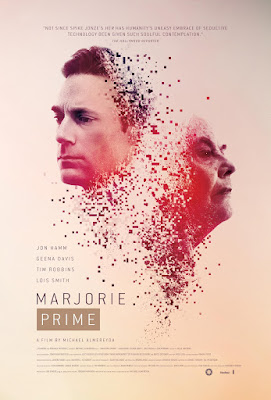Tesla also traces the race for supremacy of either direct or alternating electrical current, while combining history, philosophy, fantasy and even maybe a little wish-fulfillment (Mr. Hawke's lovely rendition, late in the movie and shown in the photo at bottom of this post, of that great song, Everybody Wants to Rule the World) to create a very personal look at this oddball-by-almost-any-standard character.
And Mr. Hawke (shown on poster, top, and above) beautifully captures the mystery, hesitancy and complexity of this man to an absolute T. Almereyda does a nice job with period detail, even if much of these are to be found via some very obvious photograph-inserted backdrops (the budget here may be big for an Almereyda project, for not, shall we say, for most studio productions).Still, the costuming is lovely and on-target (that's Eve Hewson as Anne Morgan, above, right), and the rest of the technical aspects are generally first-rate, as well. And Almereyda's subjective mix of personal, philosophical and occasionally obliquely political is always welcome. (That's Jim Gaffigan, below, right, playing George Westinghouse.)Interestingly enough, what holds the movie back from achieving full impact is simply that much of what the filmmaker covers here has already been done -- and better -- in a movie from three years ago entitled The Current War (or as we saw it on Blu-ray, The Current War: Director's Cut), which proved to be one of the best films of the past several years. The earlier film portions its time and content toward Edison and Westinghouse, with Tesla in a more supporting role. But the battle between alternating and direct current is made just as momentous and vital. Thanks mostly to the behavior of Harvey Weinstein, this better film nearly disappeared completely from view, but I suggest you seek it out. And then watch Tesla as a kind of complementary and unusual "take" on it all.From IFC Films and running 102 minutes (The Current War: Director's Cut runs exactly the same length, to the minute!), Tesla opens in select theaters and via digital and cable VOD this coming Friday, August 21.





























